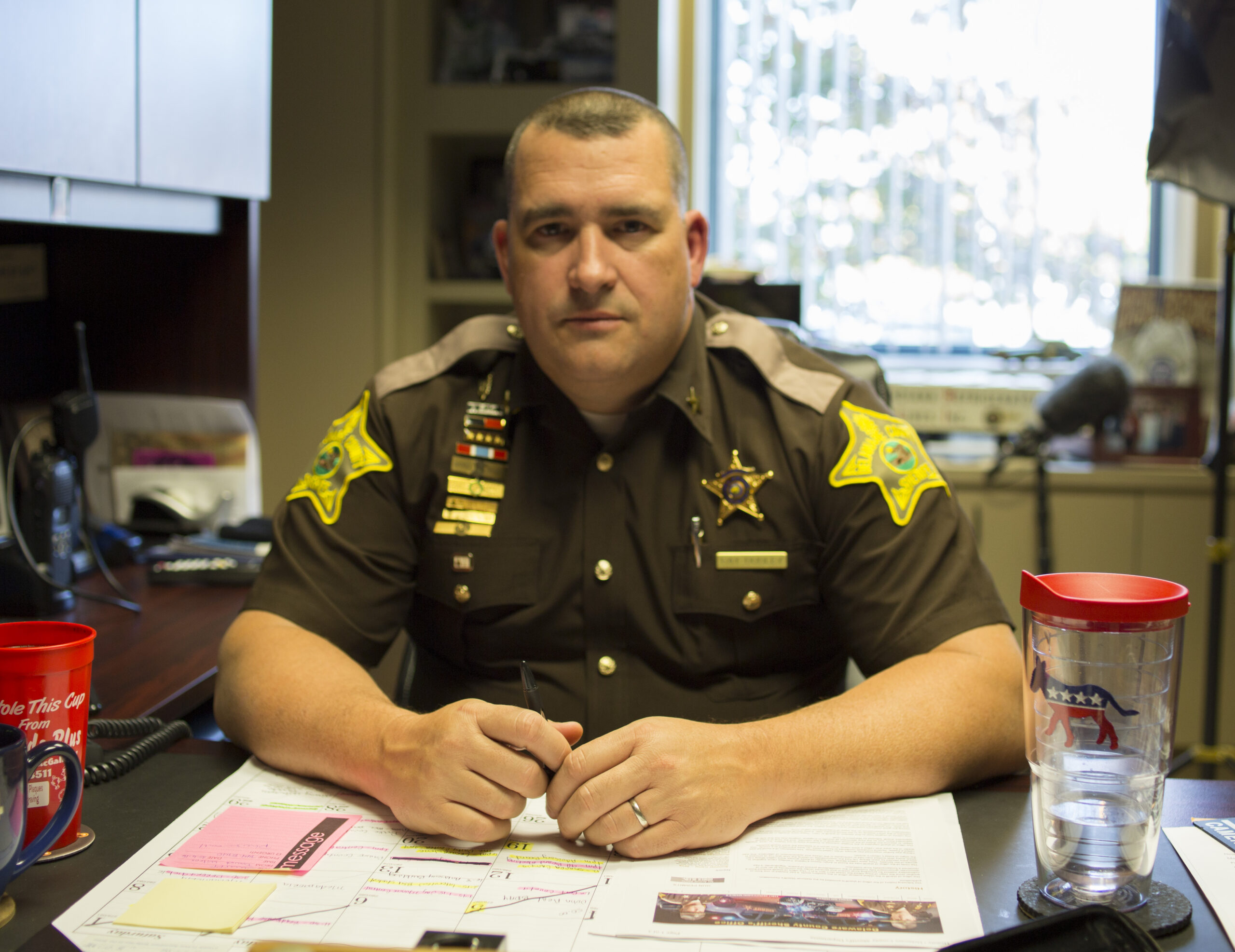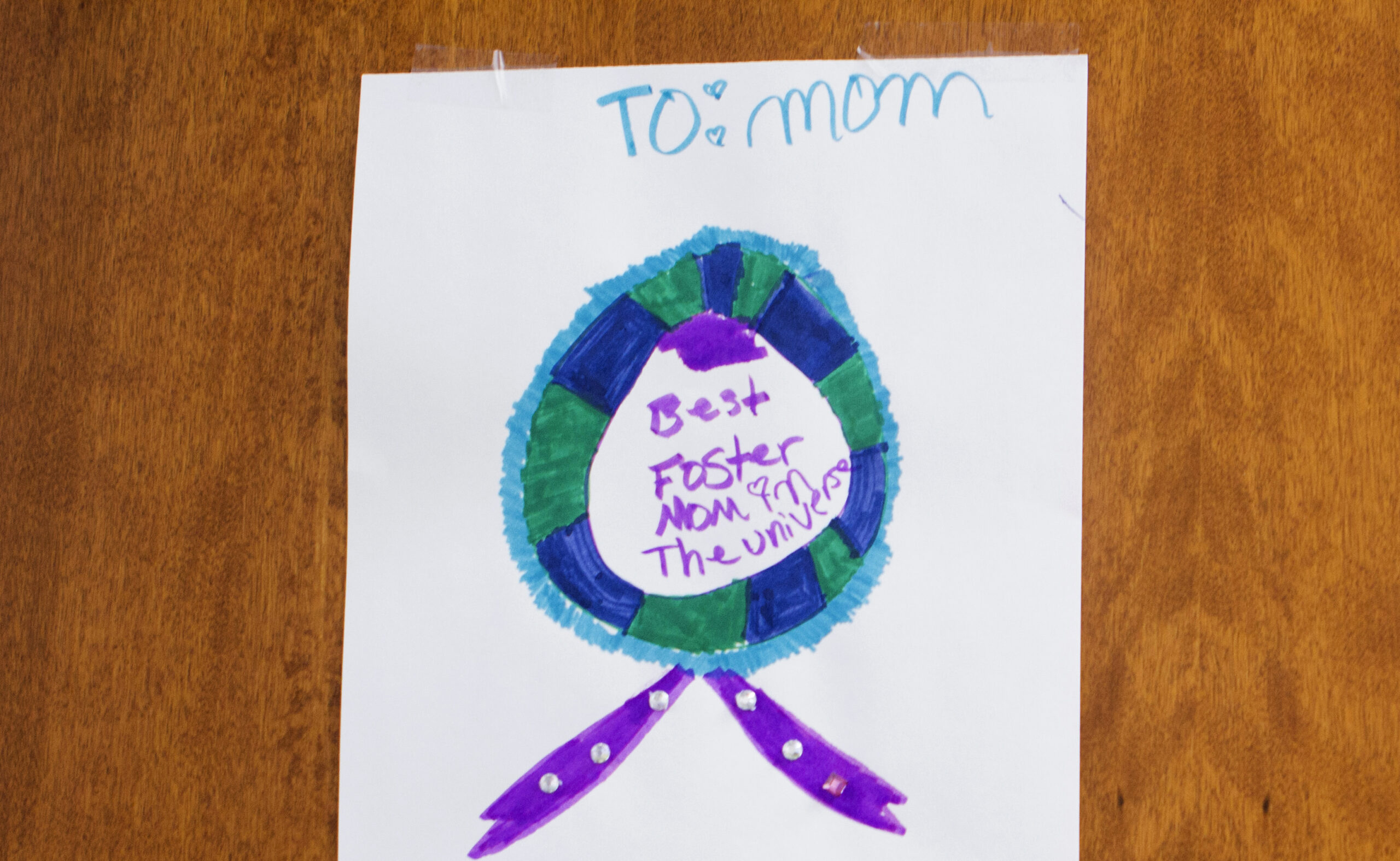
Sheriff’s dream for rehab center
November 7, 2016Addiction drives backlog of children in need of CASA volunteers
Eric, Sarah, Michelle and Faith are pseudonyms to protect the identity of the foster parents and their foster children.
Every year for the last five, Eric and Sarah have opened their home to a new person. A new child. A new beginning. A new adjustment for them and for their biological children. They’re foster parents.
The number of children in need of foster care in Delaware County has rocketed in the last five years due, in large part officials say, to drug use. Children become the collateral damage in families racked by drug addiction.
“The addiction is definitely what has caused the big problem,” said Ashley Soldaat, Delaware County’s CASA director. “You’re looking at the reason why all of these children are on our waitlist — and there may be abuse, there may be all these other reasons — but they all have some kind of underlining substance abuse — almost every single one of them.”

Ashley Soldaat, Delaware County’s CASA director
Sarah and her husband began fostering after their teenage daughter said she thought they would be good at it. As someone who already works with the Court Appointed Special Advocates, Sarah knew how badly foster families were needed, and she wanted to help.
The first girl the couple fostered was said to have a history of stealing and self-harm. Eric and Sarah were nervous — this was their first foster child — but they came to discover that Faith was a great girl. The stealing was an activity Faith’s biological mother would get her to do. She was getting help for the self-harming. And she had previously been taking care of her younger sister.
After staying with Sarah and Eric, Faith was able to move in with her grandparents. She started moving forward — getting a car, a job, a GED. She got a boyfriend and started taking college courses. The girl who had shown up at their doorstep had gotten a chance at a better life.
“She’ll still text me or email me every so often,” Sarah said. “She’s doing great. … And it’s so great to see.”
Faith became their reason to keep fostering.
When things got hard — and fostering is always hard — Sarah and Eric would think back to their first foster child. When Sarah was manipulating her schedule in order to get two foster girls to school 20 minutes away, she thought of Faith. When a Department of Child Services case manager lied about a foster child’s past problems with sexual behavior — putting their youngest daughter at risk of harm — Sarah and Eric thought of Faith. And now, after their most recent foster child threatened Eric with a razor, he thinks of Faith.
“In a way [Faith] kept us going because, ultimately, she was one of the worst traumatized kids that we had and she definitely did her best,” Eric said. “We always smile when we talk about [Faith].”
Being foster parents has taught Sarah and Eric a few things. First, foster parenting is a grueling, time-demanding, emotional process. It starts with a phone call that can occur at any time of the day. They received the call about their most recent foster children at 10 p.m. one night; the girls were dropped off at midnight.
“You’ve got to say yay or nay right there,” Sarah said. “You know their ages, you might know a tiny bit about their background and that’s all you know.”
Then they have to welcome the children into their home and work them into their lives. That means taking the children to school or therapy or visitation with their biological parents. That means teaching table manners and providing structure by having family meals. That means encouraging the children to do their best in school and being the voice — maybe the first voice — that tells them they are smart and are capable of doing better. Fostering takes physical and emotional strength.
“Your whole world gets kind of turned on its head, and you’ve got, now, a whole bunch of stuff to do that you didn’t have to do before,” Sarah said. “But then on flip side of it, you’ve got these kids in your house that just, you can tell they just really need some stability. They really just need somebody … that’s just not going to neglect them, that’s going to do the things that need to be done to take care of them.”
Article continues below video.
State Representative Ben Smaltz of Fort Wayne reveals what motivates him in his effort to keep children out of meth lab homes. Tony Sandleben reports.
The second thing Sarah and Eric learned is that there are never enough foster parents to go around. Even Sarah and Eric can’t take every child DCS calls them about. They have Michelle, who was 6 when they began fostering, and they have to think of her safety when taking in children. For her protection, they will not accept teenage boys, anyone with a history of abusing others or anyone with sexually maladaptive behaviors.
That last one was violated when a DCS case manager lied about a girl’s previous problems. She had a history of molesting her younger brother, but Sarah and Eric weren’t told this. It wasn’t until Sarah was able to talk to the girl’s therapist that she was told about the girl’s past behavior.
“This is serious stuff,” Sarah said. “The kids that come to you a lot of times have very, very, very serious issues.”
During the short period of time the girl spent in their home, Michelle was not harmed, but Sarah and Eric were furious that the case manager had denied the girl’s previous behavior when asked point-blank. The girl had to be removed from their home immediately in order to protect Michelle.
“It was well documented,” Eric said. “The case manager knew all about it. … We almost quit after that. We felt lied to. … We were just mortified that we had possibly endangered our own daughter.”
Sarah and Eric took a break from fostering after that. Being lied to by a case manager, which put their daughter at risk, on top of all of the other hardships that come with being a foster parent weighed on the couple, and they thought long and hard about whether they wanted to continue on this journey.
First, they considered the situation. Sarah knew most case managers were just doing the best job they can.
“I think that particular case manager was evil, but I think that, in general, the case managers are trying to do a very, very difficult job the best that they can,” she said.
And then they thought about Faith.
“We thought a lot about [Faith], and that was a success in our minds,” Eric said. “So we recouped a little bit, and I guess at some point it felt right. … Also, [Michelle] was older again.”
So they continued. Because the third thing they’ve learned is that the problem is getting worse. There are more children in need of foster homes than ever before. DCS local office director Dana Gault said DCS has opened more cases in the first 10 months of 2016 than it had in all of 2015.
 The department is overwhelmed, and children are waiting at Delaware County’s Youth Opportunity Center or other residential placements to be discharged to a foster home.
The department is overwhelmed, and children are waiting at Delaware County’s Youth Opportunity Center or other residential placements to be discharged to a foster home.
“We do need foster care homes,” Gault said, “because it is difficult to find homes for children. Many times we’re here at the office for hours, looking for homes. We have to place them, or we’re here at the office for hours or overnight.”
The Court Appointed Special Advocates (CASA) also has a growing weighting list with more than 285 children waiting for a representative.
“Employment’s not always been the best in Delaware County, and so finding volunteers can be really challenging,” said Soldaat said.
At the moment, there aren’t enough volunteers to cover all the CASA cases in Delaware County.
Soldaat said four years ago, CASA had a waitlist of maybe 10 families. Today, there are nearly 300 children waiting for CASA volunteers.
Soldaat said numbers began climbing about five years ago when Delaware County saw problems with prescription pills climb. William Hedrick, M.D., was prescribing clients with illegal amounts of drugs. The clinic closed in November 2014, and Hedrick was arrested in January 2015 on charges including reckless prescribing, Medicaid fraud, corrupt business influence, forgery and unlawful dispensation of opioids and other medication.
Without his alleged pain prescriptions, people turned to street drugs.
“There’s a lot of decent people that lost that crutch,” Soldaat said. “We had this big push toward looking for something to replace that. It went through different waves.”
When Muncie’s only pain clinic closed, Soldaat said people originally turned to bath salts — which are synthetic drugs that are cheap substitutes for other stimulants, such as methamphetamine and cocaine —but law enforcement was able to shut that down. Then came meth, which law enforcement still hasn’t gotten a handle on, and heroin, which is quickly becoming the biggest drug problem in Delaware County.
The rapid shift from one drug of choice to the other has meant law enforcement and court-appointed experts have had to pivot and try new approaches to bring the epidemic under control. The struggle to do that is having lasting effects.
The county has turned to a zero tolerance policy, and more drug arrests have meant more children found in homes of drug users. And the number of children needing a safe place to live has skyrocketed.
Sarah and Eric share this sentiment. The girls they have fostered have each had their own issues to come to terms with, but one thing remained constant: substance abuse played some kind of role in the reason why the girls needed a safe place to stay.
“Drugs have really disassembled a lot of these families,” Eric said. “The prospects don’t look good for some of these kids.”
Sarah and Eric continue to try and do their best to give the children they foster better lives, knowing they can make a difference, if even just for a little while.
“You’d like to think that you can cure it all or help it all or that if you just love them enough and care for them enough that it’s going to all be better — and maybe it will or maybe it won’t — but it’s certainly not going to be anything that happens quickly,” Sarah said.
Though there have been those times when she and Eric have considered quitting, Sarah believes fostering is something they are called to do.
“It’s kind of what we’re called to do as people — to do the things that we can do to make the world a better place,” Sarah said. “And you can do that one person at a time. … So I can just do my little piece and who knows what the ripple effects will be? You can’t know, so you have to do what you can do.”



